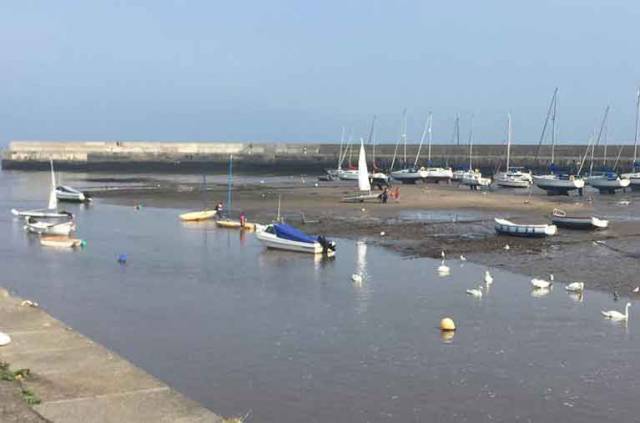Bray Harbour Action Group (BHAG), at its meeting on Tuesday 21st Feb, welcomed the report by District Manager Des O Brien to the Bray Municipal District meeting on 7th February as reported in the Bray People of 18th February here.
As Afloat.ie reported previously the action group was set up last November to deal with a situation in the east coast harbour that feared would leave a 'real prospect of the harbour becoming an abandoned eyesore'.
“This is a welcome development, said Ger Crowley BHAG chairman, it indicates a commitment by the Council to remedy this threat to the ongoing viability of the harbour. It is reassuring to hear that the sand in the harbour is not contaminated. The favoured approach, therefore, of using it for beach nourishment looks like a win-win solution benefiting both the harbour and the beach”.
“However, he continued, we are deeply concerned re the possibility of delay as the build-up of sand is a ticking time-bomb which if not addressed could well leave the harbour as a permanent derelict eyesore”
Ger went on to say that “the amount of public goodwill towards improving the harbour is terrific and we have been really delighted by the positive public response to BHAG.
Ger also said that “BHAG are really looking forward to taking up the invitation to meet with Bray Municipal Council on April 4th. At the meeting we plan not only to set out our concerns re the harbour but also our vision for a harbour that will benefit all the people of Bray”































































